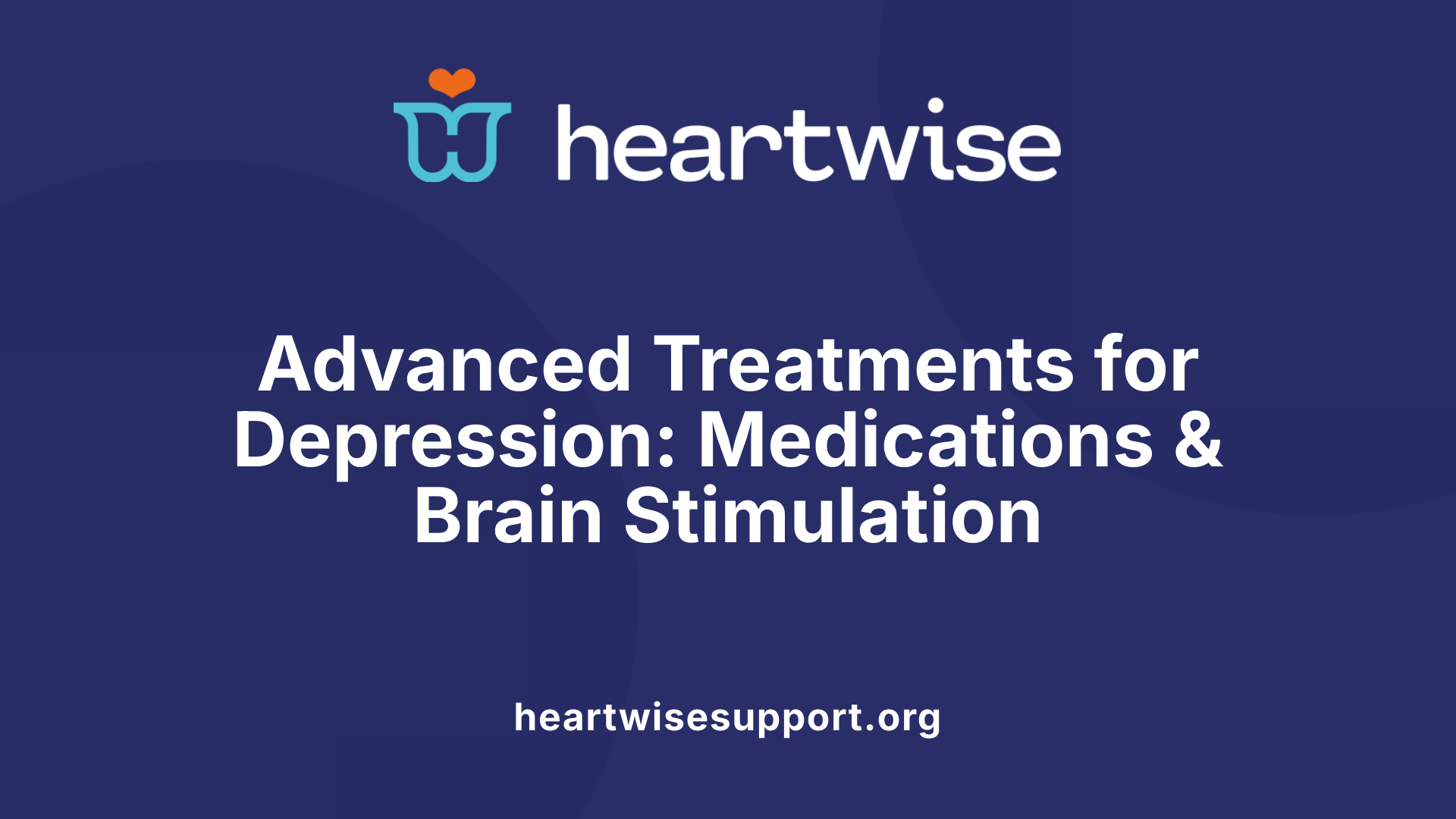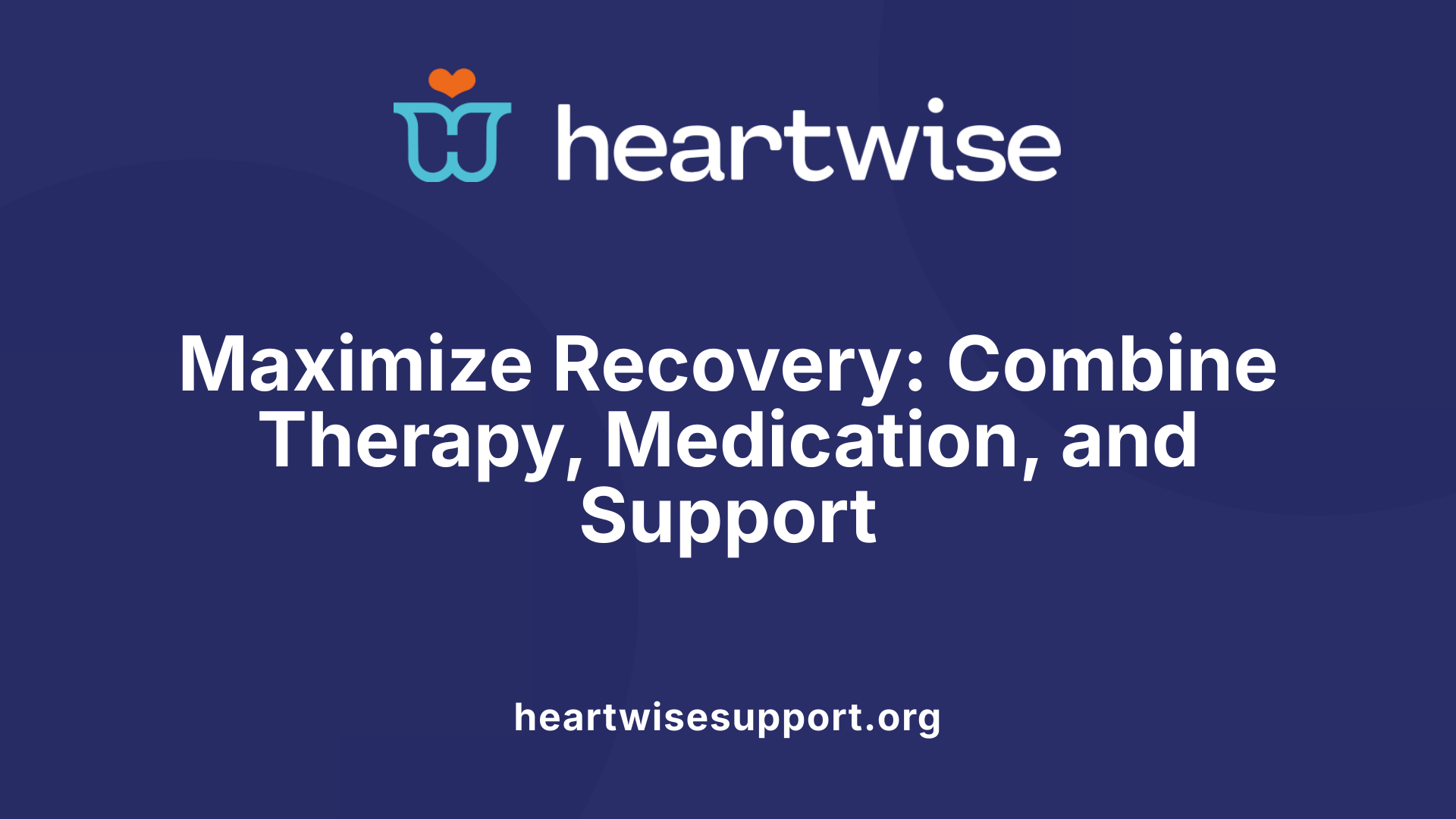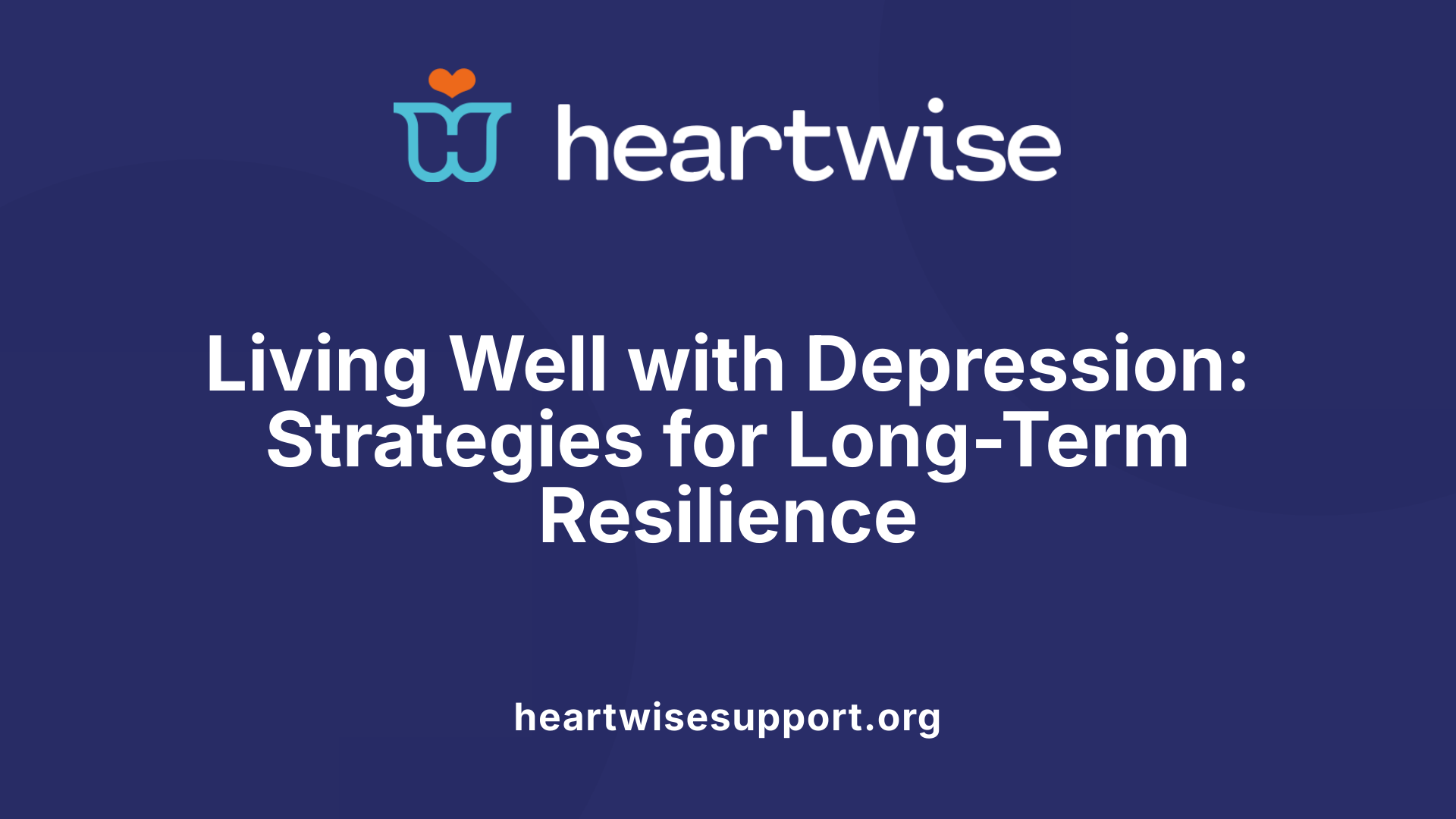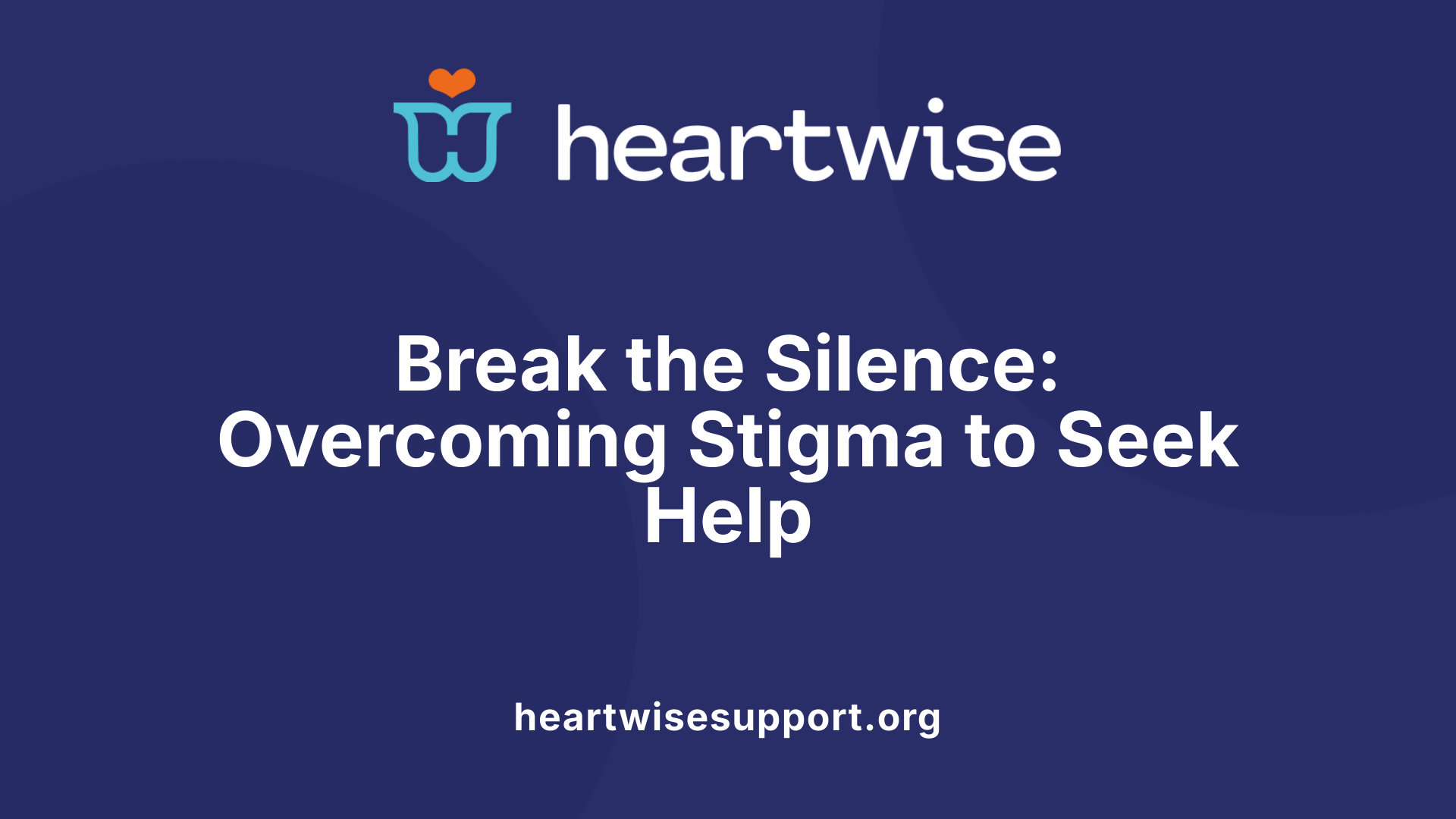Understanding the Role of Professional Support in Depression Management
Depression is a complex mental health condition affecting millions worldwide, characterized by persistent sadness, loss of interest, and difficulties in daily functioning. While it can be overwhelming, effective treatments are available. This article explores how professional therapy support, combined with medical interventions and supportive strategies, plays a vital role in managing depression, helping individuals regain control and lead fulfilling lives.
Comprehensive Overview of Depression
What are the common signs and symptoms of depression?
Depression manifests through a variety of emotional and physical symptoms. Most individuals experience persistent sadness, hopelessness, and irritability. Feelings of guilt or worthlessness are also common, accompanied by a marked loss of interest or pleasure in activities they once enjoyed. Physical symptoms such as fatigue, sleep disturbances like insomnia or oversleeping, and changes in appetite or weight may occur. Cognitive issues, like difficulty concentrating, and thoughts of death or suicide are serious signs that require immediate attention.
How is depression diagnosed?
Diagnosing depression involves a thorough clinical evaluation by a healthcare professional. To be diagnosed, symptoms must be present most of the day, nearly every day, for at least two weeks. Crucially, at least one core symptom—either a depressed mood or a loss of interest—must be observed. Often, healthcare providers conduct physical examinations and may order tests to rule out other conditions. Diagnosis also considers the impact of symptoms on daily functioning, ensuring the proper treatment plan is established.
What are the different types of depression?
Depression is not a single condition but comprises various types, each with unique features. Major depression, or major depressive disorder, involves intense and persistent symptoms that interfere with normal life. Persistent depressive disorder, formerly dysthymia, describes a chronic, milder form lasting at least two years. Seasonal affective disorder (SAD) is linked to seasonal changes, typically worsening in winter months. Other forms include depression with psychosis, bipolar disorder (which involves episodes of mania), perinatal depression (around childbirth), premenstrual dysphoric disorder, and depression related to menopause. Understanding these variations helps tailor treatment for better outcomes.
| Type | Duration | Key Features | Additional Notes |
|---|---|---|---|
| Major depression | ≥2 weeks | Severe, affecting daily life | Most common form |
| Persistent depressive disorder | ≥2 years | Milder but chronic | Often coexists with anxiety |
| Seasonal affective disorder | Seasonal pattern | Worsens in winter | Light therapy may help |
| Depression with psychosis | Varies | Psychotic symptoms present | Requires combined treatment |
| Bipolar disorder | Cycles of depression and mania | Mood swings | Managed with medication |
| Perinatal depression | During/after pregnancy | Emotional distress | Support essential |
| Premenstrual dysphoric disorder | Menstrual cycle | Severe premenstrual symptoms | Treated with therapy and medication |
| Perimenopausal depression | Around menopause | Mood changes related to hormonal shifts | Managed with lifestyle and therapy |
The Spectrum of Depression Causes and Risk Factors
What factors contribute to the development of depression?
Depression is a complex condition influenced by a mix of genetic, biological, environmental, and psychological factors. Genes can predispose individuals to depression, especially if there is a family history of the disorder. Biological factors include imbalances in brain chemicals like serotonin and norepinephrine, which affect mood regulation. Environmental stressors such as trauma, loss, or chronic stressors can trigger or worsen depression. Psychological issues, including low self-esteem, maladaptive thought patterns, and unresolved emotional conflicts, also contribute. Additionally, chronic health conditions, certain medications, and significant life events like divorce or financial failure can increase risk. Understanding these factors helps in creating personalized treatment plans, combining therapy, medication, and lifestyle adjustments to address the root causes.
Are there specific populations at higher risk?
Women are diagnosed with depression more often than men, though men tend to be less likely to seek help, which can lead to undiagnosed and untreated conditions. Men might also experience different symptoms, such as irritability or substance misuse. Certain groups face higher risks if they have a family history of depression or chronic illness. Additionally, individuals facing significant life changes or high-stress environments are more vulnerable. Other risk factors include economic hardships, social isolation, or experiencing traumatic events. Understanding these populations allows for early intervention and targeted support, improving treatment outcomes.
For further insights into the causes and risk factors of depression, exploring resources using the search query 'Causes and risk factors of depression' can provide more detailed information.
Overview of Evidence-Based Therapeutic Approaches
What are the primary psychotherapy treatments for depression?
Effective psychotherapies for depression include cognitive behavioral therapy (CBT), interpersonal therapy (IPT), psychodynamic psychotherapy, and mindfulness-based cognitive therapy (MBCT). Each of these approaches helps individuals understand and modify negative thinking patterns, improve their relationships, and develop coping skills to manage symptoms better.
CBT focuses on identifying distorted thoughts that contribute to feelings of depression and replacing them with healthier beliefs. IPT aims to resolve interpersonal issues and strengthen social support networks, often critical factors in depressive episodes. Psychodynamic therapy explores underlying emotional conflicts rooted in past experiences, promoting insight and emotional resilience. MBCT combines mindfulness practices with cognitive strategies to prevent relapse by fostering present-moment awareness and acceptance.
How effective are these therapies?
Research consistently supports the effectiveness of psychotherapy in treating depression. Meta-analyses show that these approaches can reduce depressive symptoms by over 50%. For many, therapy provides lasting benefits, helping them develop skills to handle future stressors.
Most evidence-based psychotherapy can be used alone or alongside medication, often yielding the best outcomes, especially for moderate to severe cases. Access to these therapies is often available through referrals from healthcare providers or self-referral, emphasizing their role in comprehensive depression management.
The evidence indicates that integrating psychotherapy into treatment plans significantly improves recovery rates and quality of life for individuals facing depression.
For more detailed information, searching for "Evidence-based psychotherapy for depression" can provide additional insights and recent developments in this field.
The Role of Medications and Brain Stimulation Techniques

What medication options are available for depression?
For many individuals with depression, medications are an important part of treatment. Common options include Selective Serotonin Reuptake Inhibitors (SSRIs) such as Prozac, Zoloft, and Lexapro, which are designed to increase levels of serotonin in the brain. Serotonin is a neurotransmitter involved in mood regulation.
Another class is Serotonin-Norepinephrine Reuptake Inhibitors (SNRIs), like Cymbalta and Pristiq, which boost both serotonin and norepinephrine. These medications usually take about 4 to 8 weeks to start showing their full effect.
In addition to SSRIs and SNRIs, other types of antidepressants may be prescribed based on individual needs and side effect profiles. These medications work by balancing brain chemicals and can significantly reduce symptoms of depression when used correctly.
In what cases are brain stimulation therapies recommended?
Brain stimulation therapies are generally reserved for severe or treatment-resistant depression when medication and psychotherapy have not provided sufficient relief.
Electroconvulsive Therapy (ECT) is one of the oldest and most effective options for severe depression, especially if there are urgent symptoms such as suicidal thoughts or psychosis. It involves brief electrical stimulation of the brain under anesthesia.
Repetitive Transcranial Magnetic Stimulation (rTMS) is a newer, non-invasive procedure that uses magnetic fields to stimulate nerve cells in the brain. It is typically recommended for patients who do not respond to medications.
Emerging treatments like ketamine infusion have shown promising results for rapid symptom relief in treatment-resistant depression. Administered under strict medical supervision, ketamine targets the brain’s glutamate system, offering hope for those with limited options.
| Treatment Option | Description | Typical Use Case | Next Steps |
|---|---|---|---|
| SSRIs | Increase serotonin levels | Mild to severe depression | First-line medication |
| SNRIs | Boost serotonin and norepinephrine | Treatment-resistant cases | Consult psychiatrist |
| ECT | Electrical stimulation of the brain | Severe, acute depression with imminent risk | Hospital setting |
| rTMS | Magnetic brain stimulation | Moderate to severe, resistant depression | Outpatient clinics |
| Ketamine | Rapid-acting, glutamate targeting | Treatment-resistant depression | Specialized medical centers |
Search more about depression medications and brain stimulation therapies
These advanced treatment options underscore the importance of personalized care plans. Combining medication with therapies like TMS or ECT can improve outcomes significantly, especially in stubborn cases. Understanding the available options allows patients and providers to make informed decisions based on the severity of depression and individual response to treatments.
Integrative and Personalized Treatment Strategies
Combining therapy, medication, lifestyle, and support systems
Effective management of depression often involves a tailored blend of various approaches. Clinicians assess each individual's specific circumstances, including the severity of symptoms, co-existing conditions, and personal preferences, to develop a comprehensive treatment plan. This can encompass psychotherapy such as cognitive behavioral therapy (CBT), interpersonal therapy (IPT), or psychodynamic therapy, complemented by medication when necessary.
Alongside these methods, lifestyle modifications play a vital role. Regular physical activity, a nutritious diet, and maintaining good sleep hygiene can significantly improve mood and overall well-being. Incorporating mindfulness practices like meditation or deep breathing exercises helps reduce stress levels. Building a supportive environment with family, friends, or peer support groups enhances resilience and provides encouragement.
The holistic approach ensures that treatment is not only effective but also sustainable. Personalized plans acknowledge that depression manifests uniquely in each person, requiring flexible and adaptive strategies to achieve recovery.
How can treatment be tailored to individual needs?
treatment plans are customized by evaluating severity, co-occurring conditions, and personal circumstances, often combining psychotherapy, medication, lifestyle adjustments, and support networks.
What lifestyle modifications support depression management?
Regular exercise, balanced diet, good sleep hygiene, mindfulness practices, and avoiding alcohol and drugs can enhance treatment outcomes.
| Aspect | Details | Purpose |
|---|---|---|
| Psychotherapy | CBT, IPT, psychodynamic therapy | Address negative thought patterns, improve relationships, explore feelings |
| Medication | Antidepressants, newer options like esketamine | Balance brain chemistry, alleviate severe symptoms |
| Lifestyle Changes | Exercise, diet, sleep, mindfulness | Boost mood, reduce stress, improve physical health |
| Support Systems | Family, peer groups, community | Provide emotional backing, reduce isolation |
This integrated approach ensures that individuals receive personalized, effective care tailored to their unique needs, promoting sustained recovery and resilience.
For more details on creating personalized depression treatment plans, searching "Personalized depression treatment plans" can offer additional information and support options.
Supporting Strategies and Self-Help Approaches
What supportive strategies can aid in managing depression?
Managing depression involves a combination of self-care, social support, and timely professional assistance. Engaging in regular physical activity, such as walking or exercise, can boost mood by releasing endorphins, which are natural mood lifters.
Maintaining consistent routines helps provide stability and structure, which can combat feelings of chaos and helplessness often associated with depression. Building social connections is equally vital; spending time with loved ones or joining support groups can reduce feelings of loneliness and provide emotional comfort.
Educating oneself about depression through reliable resources increases understanding of the condition, helping to normalize experiences and encouraging proactive management.
Practicing mindfulness techniques, including meditation or deep-breathing exercises, can help manage stress and promote emotional regulation. Importantly, seeking early help from healthcare professionals can prevent symptoms from worsening, facilitating quicker recovery and better treatment outcomes.
How important is social support in depression recovery?
Support from family, friends, and mental health support groups plays a crucial role in recovering from depression. Positive social interactions can reduce feelings of isolation and provide a sense of belonging.
Support networks offer encouragement, help maintain motivation for treatment adherence, and provide practical assistance during challenging times. They also serve as vital sources of reassurance, reminding individuals they are not alone in their journey.
Overall, strong social support can enhance resilience, improve mood, and significantly contribute to the effectiveness of other treatments such as therapy and medication.
The Significance of Early Intervention and Professional Help

When should one seek professional help for depression?
Recognizing the signs of depression early on is crucial for effective treatment. Individuals experiencing persistent symptoms that interfere with their daily activities—such as difficulty concentrating, feelings of hopelessness, loss of interest in activities, or thoughts of self-harm—should seek professional help promptly. This may involve consulting a general practitioner (GP) who can provide initial assessment and refer to mental health specialists like psychologists or psychiatrists.
Early intervention can significantly improve outcomes by preventing the worsening of symptoms and reducing the risk of complications like suicide. It’s important to remember that depression can affect anyone, regardless of age or background, and seeking help is a vital step toward recovery.
Diagnostic processes and the importance of early treatment
Diagnosing depression involves a thorough evaluation of symptoms, medical history, and sometimes physical tests to rule out other conditions. Key diagnostic criteria include experiencing depressive symptoms most of the day, nearly every day, for at least two weeks, with at least one core symptom such as depressed mood or loss of interest.
Early treatment is essential because it can shorten the duration of depression, lessen its severity, and improve the quality of life. Delaying treatment may lead to persistent symptoms, increased difficulty in functioning, and a higher risk of self-harm or suicidal thoughts.
The benefits of seeking help early
Prompt professional support allows for tailored treatment plans, often combining psychotherapy, medication, and lifestyle changes. Evidence shows that most people respond well to early intervention, with recovery rates between 70% and 90%. Furthermore, early treatment can help individuals develop essential coping skills, manage triggers, and build resilience against future episodes.
By recognizing the signs and acting quickly, individuals stand a better chance of managing depression effectively and regaining their well-being.
| Aspect | Description | Additional Notes |
|---|---|---|
| When to seek help | Persistent symptoms affecting daily life | Early help minimizes long-term impacts |
| Diagnostic process | Symptom assessment, medical history, tests | Accurate diagnosis guides effective treatment |
| Risks of delay | Worsening symptoms, risk of self-harm | Increased impairments, reduced quality of life |
| Treatment approach | Psychotherapy, medication, lifestyle changes | Combining treatments often yields best results |
| Support options | GP referrals, self-referral, support groups | Accessible through healthcare pathways |
The Importance of Multidisciplinary Support in Depression Care
How do mental health professionals assist in depression recovery?
Mental health professionals, including psychologists, psychiatrists, therapists, and support workers, play a vital role in helping individuals recover from depression. They offer evidence-based treatments such as psychotherapy — like cognitive behavioral therapy (CBT), interpersonal therapy (IPT), and psychodynamic psychotherapy — which help individuals understand and change negative thought patterns and behaviors. Psychiatrists may prescribe medications such as antidepressants to address biological factors contributing to depression, and sometimes brain stimulation therapies like electroconvulsive therapy (ECT) are used for severe cases. Support workers assist with practical daily management and emotional support. By tailoring treatment plans to each person’s needs, these professionals target not only the symptoms but also underlying causes, offering a comprehensive approach to recovery.
What is the value of an integrated care approach?
An integrated care approach combines psychological therapies, medical treatments, and social support services. This synergy ensures that all aspects of depression are addressed, which often results in improved outcomes. For example, combining talk therapies with medication can be particularly effective for severe depression. Furthermore, involving different specialists ensures personalized treatment, helps manage co-occurring conditions, and provides a support network that fosters resilience. Evidence shows that this holistic model not only enhances the effectiveness of treatment but also encourages sustained recovery. Such comprehensive support can make a significant difference, especially in complex or persistent depression cases.
| Aspect of Support | Role | Benefits | Additional Details |
|---|---|---|---|
| Psychologists | Conduct evidence-based psychotherapy | Help change negative thought patterns and behaviors | Includes CBT, IPT, psychodynamic therapy |
| Psychiatrists | Prescribe and manage medication | Address biological influences on depression | Also oversee brain stimulation options |
| Therapists & Counselors | Provide talk therapy and coping strategies | Support emotional processing and skills development | Can include group therapy |
| Support Workers | Offer practical and emotional support | Assist in daily functioning and social integration | Important in outpatient and community settings |
More info about multidisciplinary depression support can be found by searching "Multidisciplinary depression support." Accessing a team of diverse professionals ensures a rounded, effective, and personalized treatment journey for each individual, increasing the chances of successful recovery and long-term well-being.
Benefits of Combining Therapy with Medication and Support Systems

Why is combining therapy and medication effective?
Combining psychological therapies with medication provides a comprehensive approach to treating depression. This strategy targets the biological aspects of depression, such as brain chemistry imbalances, through medication, while therapy addresses emotional and behavioral factors.
Medication like antidepressants often takes several weeks to become effective, providing rapid symptom relief for biological symptoms. Meanwhile, therapies such as cognitive behavioral therapy (CBT) and interpersonal therapy (IPT) help patients identify negative thought patterns and improve interpersonal skills.
This integrated approach speeds up recovery, enhances the durability of treatment effects, and reduces the risk of relapse. Research indicates that those receiving both treatments tend to see better outcomes compared to using either therapy or medication alone.
How do support systems contribute to managing depression?
Support systems play a crucial role in managing depression. Family members, friends, peer groups, and community resources offer emotional support and practical assistance, which are vital for recovery.
These networks help reduce feelings of isolation and increase motivation to stick with treatment plans. Ongoing professional support, such as regular check-ins with therapists or support groups, can help individuals navigate challenges and reinforce coping strategies.
Support systems also promote accountability and understanding, making it easier for individuals to recognize early signs of relapse and seek timely help. Overall, a robust support network fosters resilience, encourages adherence to treatment, and improves long-term outcomes.
This holistic approach, combining medical treatment, psychological therapy, and social support, ensures a more effective and sustainable management of depression.
| Aspect | How It Contributes | Additional Notes |
|---|---|---|
| Medication | Balances brain chemicals | Effective for biological symptoms |
| Psychotherapies | Targets emotional and cognitive aspects | Helps modify thought patterns |
| Support Systems | Provides encouragement and reduces isolation | Promotes treatment adherence |
Integrating these elements offers a well-rounded strategy for overcoming depression, supporting lasting recovery and minimizing the chances of relapse.
Ongoing Management and Living Well with Depression

What are key long-term strategies for living well with depression?
Living with depression often requires ongoing effort and supportive practices. Maintaining consistent routines, such as regular sleep schedules, healthy eating, and physical activity, can help stabilize mood. Many individuals find that ongoing engagement with therapy—whether through periodic booster sessions or continuous support—helps manage symptoms and prevent relapses. Stress management techniques like mindfulness meditation, deep breathing exercises, and relaxation strategies are also beneficial. Moreover, fostering strong, supportive relationships with friends, family, and peer groups provides emotional resilience and a sense of connection that is vital for long-term well-being.
Building resilience involves strategies beyond routine management. It includes developing adaptable coping skills that can be applied in various situations. Engaging in meaningful activities—such as hobbies, volunteering, or educational pursuits—helps create a positive foundation and counteract feelings of hopelessness. Regular check-ins with healthcare providers, whether through therapy or medication reviews, ensure that treatment remains effective and tailored to changing needs. Collectively, these practices contribute to a stable mental outlook and reduce the likelihood of future depressive episodes.
How can individuals build resilience against future episodes?
Resilience against depression is fostered through several proactive approaches. Developing flexible coping mechanisms, such as problem-solving skills, emotional regulation, and stress reduction techniques, prepares individuals to handle challenges more effectively. Engaging in activities that promote a sense of achievement and purpose enhances emotional strength.
Seeking regular professional support—even when symptoms diminish—serves as a preventive measure. This ongoing relationship with mental health professionals can help identify early signs of relapse and adjust treatments accordingly. Maintaining a supportive social environment, practicing self-care routines, and staying physically active all reinforce resilience. Understanding personal triggers and stressors enables individuals to develop personalized strategies for managing potential setbacks.
By integrating these resilient practices into daily life, people living with depression can better manage their condition and sustain their mental health over time. They can enjoy a more balanced, fulfilling life, equipped with the skills necessary to navigate future challenges.
Addressing Stigma and Promoting Help-Seeking Behavior

Why is addressing stigma important?
Reducing the stigma associated with depression plays a crucial role in encouraging individuals to seek help early. When depression is viewed as a serious health condition rather than a personal weakness, more people are likely to reach out for professional support without fear of judgment. Early intervention through therapy or medical treatment can lead to better outcomes, faster recovery, and a reduction in suffering caused by untreated depression.
Stigma often acts as a barrier, discouraging individuals from sharing their struggles or seeking assistance. Removing negative stereotypes helps normalize depression as a common mental health issue, fostering a supportive environment where people feel safe to pursue treatment.
What messages can promote help-seeking?
Promoting positive messages is vital in changing perceptions about depression and mental health treatment. Messages such as "Depression is a common medical condition," help individuals understand that they are not alone and that depression can affect anyone regardless of age, gender, or background.
Furthermore, emphasizing that "Seeking help is a sign of strength" encourages people to view therapy and medical support as proactive steps towards healing, rather than weaknesses or failures. Highlighting the effectiveness of professional support in leading to recovery and a better quality of life can motivate more individuals to take the first step.
Additional insights
Combating stigma and promoting help-seeking require ongoing community education, public awareness campaigns, and sharing real stories of recovery. Such efforts can demystify depression, dispel myths, and foster a culture where mental health is openly discussed and supported.
For more information, search terms like "Stigma and help-seeking in depression" can provide additional research findings and success stories that reinforce these messages and strategies.
Pathways to Recovery and Well-being
Managing depression with professional therapy support is a multifaceted journey that combines medical intervention, psychotherapy, lifestyle changes, and social support. Recognizing symptoms early, seeking appropriate treatment, and building supportive networks are crucial steps. With the right approach tailored to individual needs, recovery is achievable, and individuals can regain a life of purpose and joy. Embracing the available evidence-based treatments and support resources paves the way for a healthier, more resilient future.
References
- Treatment - Depression in adults - NHS
- Depression (major depressive disorder) - Diagnosis and treatment
- Depression - National Institute of Mental Health (NIMH)
- Depression - treatment and management | Better Health Channel
- Overcoming depression: How psychologists help with depressive ...
- How Does Therapy Help in the Treatment of Depression?
- Depression: Causes, Symptoms, Types & Treatment - Cleveland Clinic
- Efficacy of Peer Support Interventions for Depression: A Meta-Analysis











